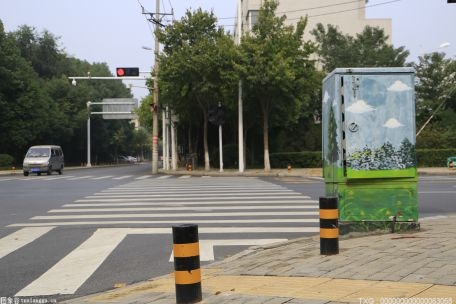People rally to protest against the Japanese government"s plan to discharge nuclear-contaminated water into the sea in Tokyo, Japan, May 16, 2023.(Xinhua/Zhang Xiaoyu)
"Through today"s actions, we are raising our voice against the dumping plan to the whole world" - Japanese citizens protest against the government"s plan to discharge nuclear wastewater into the sea ahead of the G7 summit in Hiroshima.
 (资料图片仅供参考)
(资料图片仅供参考)
TOKYO, May 18 (Xinhua) -- In the run-up to the Group of Seven (G7) summit in Japan"s western city of Hiroshima, large numbers of Japanese have taken to the streets in Tokyo to protest against the government"s move to discharge nuclear wastewater into the sea.
They also handed a petition to the Japanese government, Tokyo Electric Power Company (TEPCO) and the parliament, demanding immediate suspension of the dumping plan.
On Tuesday morning, residents from prefectural regions including Tokyo, Fukushima and Nagasaki, rallied in front of the TEPCO headquarters, about only 1 kilometer away from Kasumigaseki where Japan"s central government departments gather.
People rally at Hibiya Open-Air Concert Hall to protest against the Japanese government"s plan to discharge nuclear-contaminated water into the sea in Tokyo, Japan, May 16, 2023. (Xinhua/Zhang Xiaoyu)
Chanting slogans such as "Don"t pollute the ocean," "Protect fisheries" and "Guard the future" in unison, the crowd held banners and flags with slogans that read "Don"t discharge polluted water into the sea," "Don"t pollute the ocean for all," and "The sea is not the toilet for nuclear power plants."
Hit by a magnitude-9.0 earthquake and an ensuing tsunami on March 11, 2011, the Fukushima Daiichi nuclear power plant suffered core meltdowns that released radiation, resulting in a level-7 nuclear accident, the highest on the International Nuclear and Radiological Event Scale.
The plant has been generating a massive amount of water tainted with radioactive substances from cooling down the nuclear fuel in the reactor buildings, which are now stored in about 1,000 storage tanks.
In 2015, the Japanese government and TEPCO made an agreement with fisheries cooperative associations of both Fukushima prefecture and the nation that they will not proceed with any wastewater disposal "without the understanding of relevant parties."
This photo taken on May 16, 2023 shows the gate of the headquarters of Tokyo Electric Power Company (TEPCO) in Tokyo, Japan.(Xinhua/Zhang Xiaoyu)
However, the Japanese government announced in April 2021 its controversial plan to release diluted wastewater into the Pacific Ocean and stated in January this year that the discharge will start "in the spring or summer."
Kazuyoshi Sato, co-director of KOREUMI, a Japanese citizens" conference to condemn further pollution of the ocean and one of the rallies" organizers said on Tuesday the Japanese government has been making all kinds of excuses, stressing that other discharge methods would not work, and they could not preserve nuclear-polluted water on land.
Sato, also a resident of Fukushima prefecture, added that the Japanese government is now spending tens of billions of yen to publicize the discharge plan through various media platforms, but the public, not convinced of such wrong propaganda, will not agree to the decision.
"Through today"s actions, we are raising our voice against the dumping plan to the whole world," he said.
People rally in front of the Second Members" Office Building of the House of Representatives to protest against the Japanese government"s plan to discharge nuclear-contaminated water into the sea in Tokyo, Japan, May 16, 2023.(Xinhua/Zhang Xiaoyu)
Tokyo resident Kouzou Seki, who is originally from Fukushima and has participated in several anti-discharge rallies, told Xinhua that everyone, from members of the local fishing association to local residents in Fukushima, is against the dumping plan, "but the government forced the decision anyway."
"We have to stop the discharge," he said, adding that it is not too late to start considering and developing proper methods instead of the discharge plan.
At rallies held at TEPCO headquarters and the Members" Office Buildings of the House of Representatives on Tuesday, Chiyo Oda, another co-director of the group, read and submitted a petition to relevant representatives, demanding them to abide by the agreement with local associations such as Fukushima Prefectural Federation of Fisheries Co-operative Associations and not to discharge nuclear-polluted water into the ocean without the understanding and consent of relevant parties.
The petition required disclosure of information such as the concentration and total amount of all radionuclides and reassessment of the radiation"s impact on the marine environment and creatures.
It also demanded fundamental countermeasures from TEPCO, such as exploring the construction of large water storage tanks for long-term nuclear-polluted water preservation and promoting the practical application of tritium separation technology.
People rally in front of the headquarters of Tokyo Electric Power Company (TEPCO) to protest against the Japanese government"s plan to discharge nuclear-contaminated water into the sea in Tokyo, Japan, May 16, 2023(Xinhua/Zhang Xiaoyu)
On Tuesday evening, about 500 protesters gathered in Hibiya Park, where Takayuki Yani, a Fukushima resident who works in the fishing industry, questioned if the government would dump the wastewater without any authorization by ignoring the previous agreement.
According to him, radioactive substances in the wastewater still raise jitters, and marine products from Fukushima suffered rejections by the market in the cases of previous leaks of nuclear-contaminated water stored in tanks.
"This is unacceptable to us in the fishing industry and I think it is not understood by most relevant parties," he said.
Tuesday"s protests were also supported by civic groups in South Korea. Esther Yu, who traveled from South Korea to attend the rally, told Xinhua that they are worried about the release of contaminated water into the sea.
"We are very angry that the South Korean government now no longer actively opposes the plan and is even tolerant of it," she said.
It was past seven o"clock at night and the street lights were just beginning to come on. The protesters, chanting slogans, lined up and marched toward Tokyo"s Ginza.
标签:
















